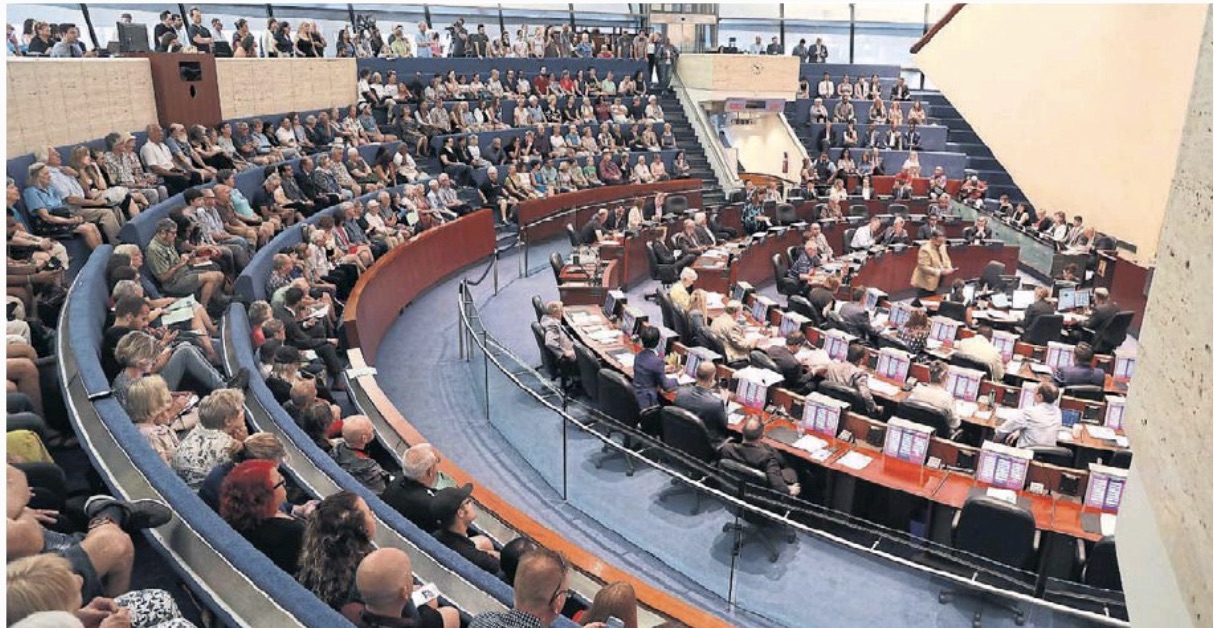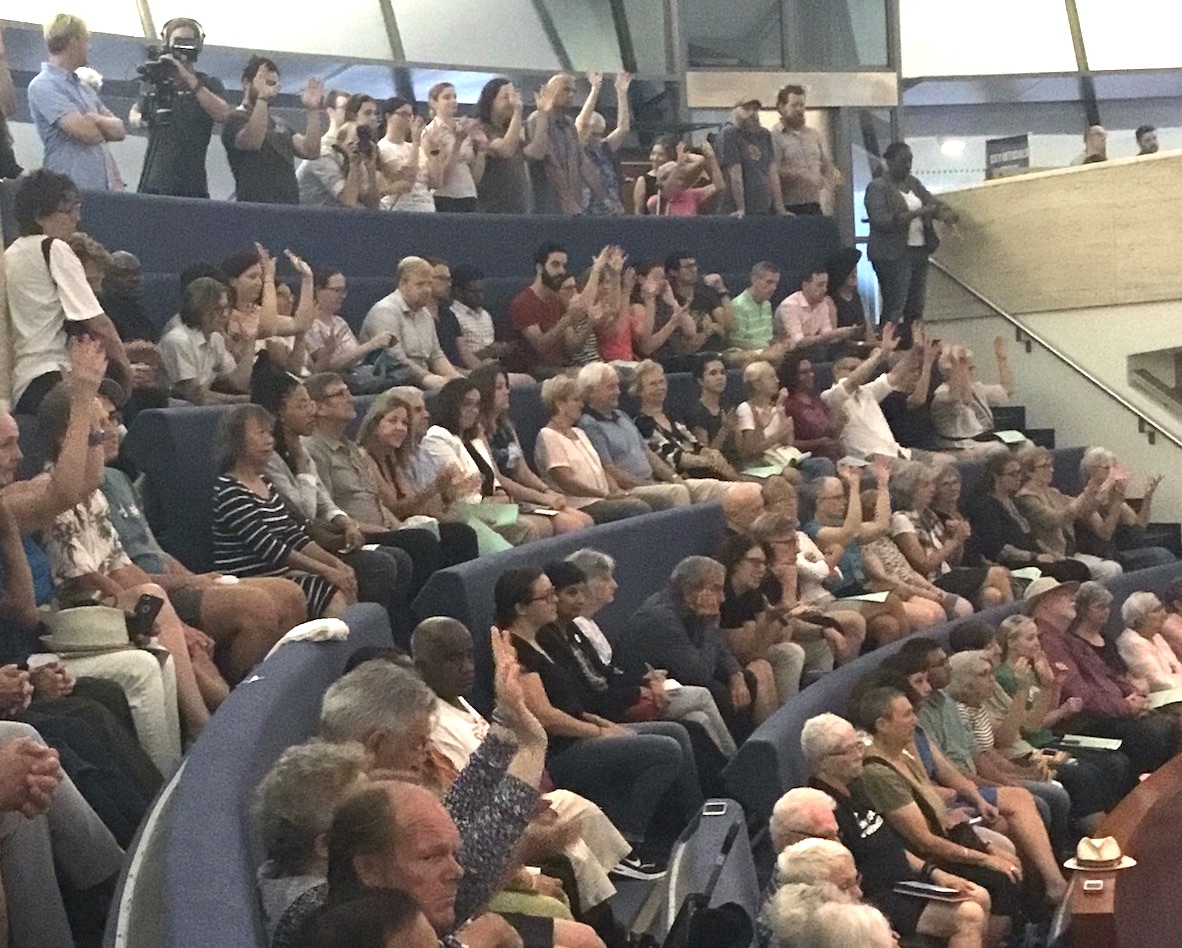It is Monday morning – 20 August – and I am up with the lark. Today I go down to Toronto City Hall for an historic meeting.

Toronto councillors are to decide whether or not to challenge Doug Ford’s Bill 5 which slashes the number of councillors in half.
The Council Chamber is packed.
Now the show is on the road and I hear loud applause as former Chief Planner and Mayoral candidate, Jennifer Keesmaat, enters the Chamber. I hear the Speaker, Frances Nunziata, scolding the public. She insists there must be no clapping.
I close my eyes and for a brief moment I am back in Newmarket listening to the scowling old banker Tony Van Trappist warning the public that applause is not allowed. We must be respectful.
Jazz hands
Now Paula Fletcher, the veteran councillor for Toronto Danforth, is on her feet telling us that while we can’t applaud we can do jazz hands. Terrific! This is completely new to me.
So, all through the meeting, in common with everyone else in the public gallery, I am fluttering my hands in front of me whenever I hear something I agree with. It’s great fun.
In between the jazz handing I learn a lot.
The Council currently has 44 members plus the Mayor but was moving to a new 47 ward structure which was the product of five year’s work. I learn the 47 member council met the “effective representation” test laid down by the Supreme Court of Canada in Carter v Saskatchewan.
All this was set aside by Doug Ford in a fortnight.

Ford’s action in bulldozing Bill 5 (aka the Better Local Government Act 2018) through the Legislature in double-quick time broke any number of unwritten conventions. There was no mention of Bill 5 in the PC manifesto or platform that was put before the public in the election campaign. There was no public consultation on the details of the Bill and no Committee Stage where MPPs could examine the Bill line by line. Toronto City Council was not formally invited to give its views and senior staff such as the City Clerk were not consulted either.
Changing the rules in the middle of the game
For the first time in Canadian history the rules governing an election have been changed while that election is under way.
The City Council Clerk, Ulli Watkiss, clearly exasperated, tells us it is a race against time to organise an election by 22 October that would not be open to challenge. She tells councillors she is “extremely concerned about standards”.
The City Clerk tells us the move to 25 wards will involve:
- Identifying new voting locations
- Reassigning and training thousands of election day staff
- Ensuring production of the voting ballots is 100% accurate. Ballot production is a “complicated process” where there must be no errors or mistakes.
- Re-jigging the IT systems – which are critical to the election – back from 47 wards to 25
- Ensuring adequate notice is given to the public informing them where they will be able to vote in the advance polls which open on 6 October 2018.
- Re-coding the on-line App, MyVote, to reflect all the changes.
Candidates will be given voters’ lists only weeks before voting begins. The electorate in the new wards is huge. Candidates will have very little time to make contact with the voters.
The new wards will match the boundaries of the Federal and Provincial Ridings. If the number of Federal ridings goes up in the future then the City Council will follow suit.
Cost of election goes up by $2.5 million
I learn that the Council has already spent an extra $2.5 million as a result of the changes imposed by Queen’s Park. There’s staff overtime and new contracts with the people who test and validate the systems that are critical in delivering a fair and problem-free election.
The Mayor, John Tory, is in favour of a Court challenge. And a clear majority of councillors too.
Giorgio Mammoliti, a close ally of the Ford clan, passes round a plate of cheese sandwiches to his fellow councillors:
"Have some cheese to go with all the whining!"
I shake my head in disbelief. Is this the best he can do?
The Hearing has been set for 31 August 2018 when the City of Toronto will join other litigants determined to challenge the Province.
Given the election timetable the Court’s decision is likely to be expedited.
This email address is being protected from spambots. You need JavaScript enabled to view it.
Update on 21 August 2018: Number of legal challengers growing.